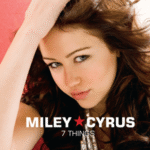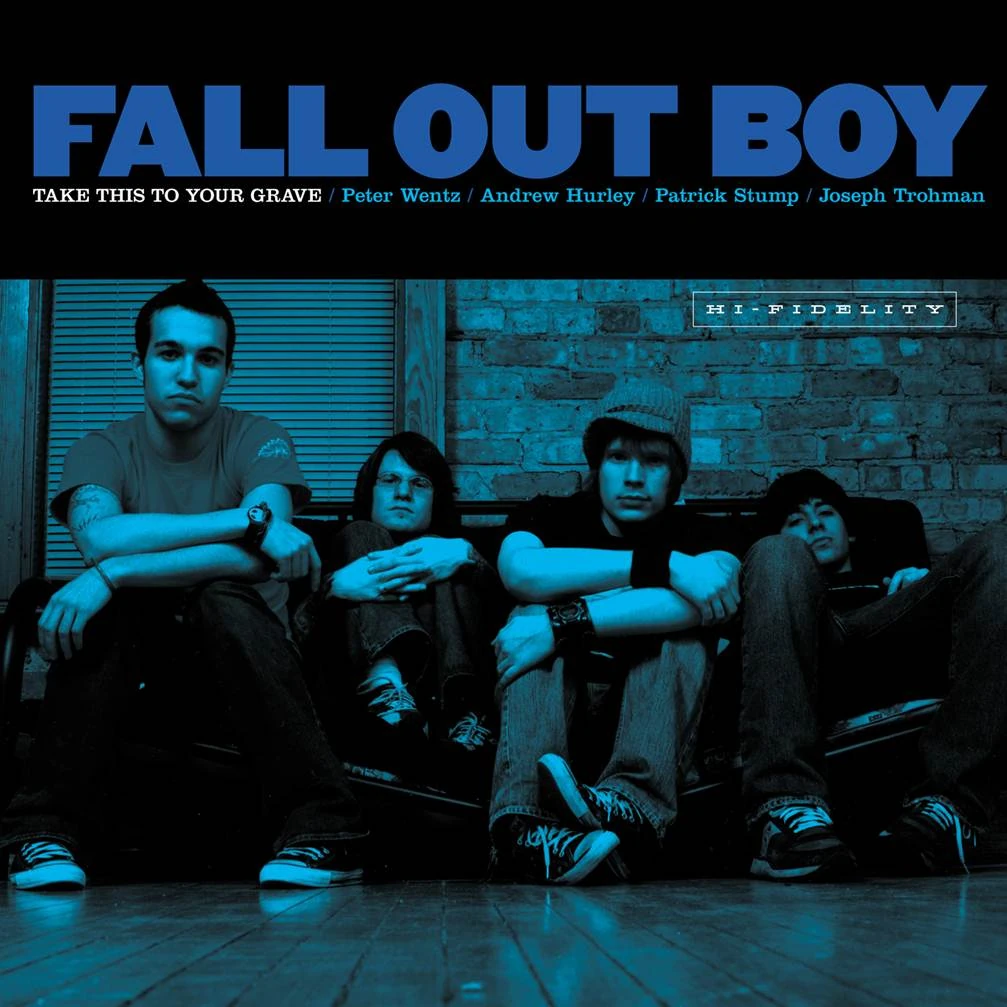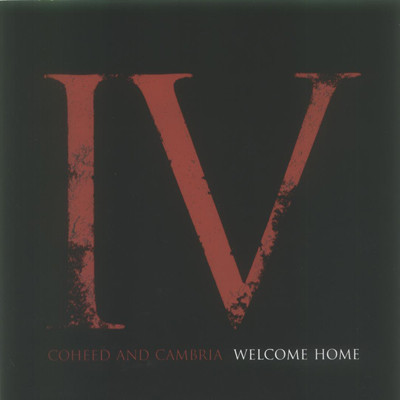 When Miley Cyrus released “7 Things” in 2008, she was standing right at the crossroads between Disney Channel stardom and full-fledged pop independence. The song wasn’t just another radio single from a teen idol — it was a carefully disguised emotional purge, one that captured the chaotic cocktail of young love, heartbreak, and empowerment that so many of her fans were living through at the same time. Written after her breakup with fellow teen star Nick Jonas, “7 Things” felt both cathartic and combustible — like someone ripped open the pages of a private diary and set them to power chords. What made it stand out wasn’t just its energy, but its balance between anger and vulnerability. Miley wasn’t just mad; she was hurt, confused, and brave enough to let us see all of it.
When Miley Cyrus released “7 Things” in 2008, she was standing right at the crossroads between Disney Channel stardom and full-fledged pop independence. The song wasn’t just another radio single from a teen idol — it was a carefully disguised emotional purge, one that captured the chaotic cocktail of young love, heartbreak, and empowerment that so many of her fans were living through at the same time. Written after her breakup with fellow teen star Nick Jonas, “7 Things” felt both cathartic and combustible — like someone ripped open the pages of a private diary and set them to power chords. What made it stand out wasn’t just its energy, but its balance between anger and vulnerability. Miley wasn’t just mad; she was hurt, confused, and brave enough to let us see all of it.
The late 2000s were a time when pop music was still learning how to deal with authenticity in the age of image control. Miley, fresh off her success with Hannah Montana, was caught in that in-between space — too young to be taken seriously as an adult artist, but too self-aware to stay trapped in bubblegum land. “7 Things” was her first real swing at claiming her own emotional truth. It’s not a power ballad, and it’s not quite a punk song either, but it’s got elements of both: crunching guitars, a catchy hook, and an emotional edge that slices through the gloss. It was the sound of a teenage girl figuring herself out in real time — and doing it loudly.
The Birth of a Teenage Anthem
“7 Things” came out as the lead single from Miley’s second studio album, Breakout, and it marked a huge tonal shift from her previous releases. Produced by John Fields and co-written with Antonina Armato and Tim James, the track hit radio in June 2008. What set it apart from other songs of that summer was its fearless emotional transparency. It didn’t rely on the kind of vague heartbreak clichés that filled pop radio. Instead, it built its identity around something very specific — a list.
That list, of course, is the beating heart of the song: seven things she hates about her ex, seven things she loves about him. The structure gives the song its unique identity, but it also mirrors the way teenagers think and feel — everything intense, categorized, and contradictory. Miley’s delivery captures that contradiction perfectly. She spits out her grievances with frustration and hurt, but when she gets to the “seven things I like about you,” her tone softens, even trembles. The song becomes a confession wrapped in rebellion, revealing the complex emotional mess that heartbreak really is.
“Your Voice, Your Hair, Your Old Levi’s…”
The lyrics are deceptively simple, but they carry the kind of personal specificity that gives them their punch. The line “Your friends, they’re jerks / When you act like them, just know it hurts” feels like it came straight from a notebook scrawled during homeroom. The imagery — his laugh, his hair, his old Levi’s — paints a clear picture of a very real person. That level of detail made the song feel authentic, which is rare in a pop landscape that often polishes feelings until they’re unrecognizable.
By the time Miley reaches the chorus, her voice cracks just enough to remind you this isn’t an act. “The seven things I hate about you,” she belts, before turning the phrase around: “The seven things I like about you.” That lyrical reversal is the real gut punch. It turns the song from an angry breakup anthem into something far more human — a recognition that love and hate can exist side by side, especially when you’re young and still learning what both really mean.
The Sound of Teenage Catharsis
Musically, “7 Things” lands somewhere between pop-punk and radio pop. It’s got a snarl, but not enough to alienate her Disney audience. The guitars are crunchy, the drums drive hard, and there’s just enough polish to make it Top 40 friendly. Think of it as the meeting point between Avril Lavigne’s Let Go and Kelly Clarkson’s Breakaway — catchy, angsty, and built to be screamed in bedrooms across America.
That balance of rawness and radio sheen made it a generational anthem. For many listeners, it was the first time they heard Miley let down the walls of her Hannah Montana persona. She wasn’t pretending to be anyone else here. The song’s imperfections — her voice cracking, the breathy gasps between lines — made it feel alive. It was proof that teenage emotion didn’t have to be filtered through pop perfection to be powerful.
The Music Video: Confession Meets Catharsis
The music video for “7 Things,” directed by Brett Ratner, became just as iconic as the song itself. Set in a simple white room, it features Miley singing into the camera as teenage girls around her break down, cry, and rage. The imagery feels almost therapeutic — as if each girl is shedding her pain in front of the world. It’s not just a breakup song anymore; it’s a collective release.
That video also helped solidify Miley’s transformation from child star to relatable young woman. She wasn’t singing as Hannah Montana. She wasn’t even fully performing. She was feeling. And the close-up shots of her tears at the end of the video made sure no one could doubt it. This was her stepping into the messy, unpredictable world of adult emotions — and she did it without hiding behind a character.
Between Love and Hate: The Emotional Core
What’s most fascinating about “7 Things” isn’t its anger, but its vulnerability. The song captures the universal teenage experience of being furious at someone you still love. That duality — resentment tangled with longing — is what makes it linger long after the chorus fades.
When Miley lists the things she hates (“You’re vain, your games, you’re insecure”), we’re right there with her, fists clenched. But when she turns it around (“You make me laugh, you make me cry, I guess that’s both I have to buy”), we feel the heartbreak beneath the fury. That line, in particular, says everything about how messy young love can be — how you can despise someone and still miss them desperately.
It’s also worth noting how self-aware the song is. Miley was only 15 when she recorded it, but she already had a sharp understanding of how to channel emotion into art. That instinct would become one of the defining traits of her career. “7 Things” laid the foundation for the unfiltered honesty that would later define songs like “Wrecking Ball” and “Slide Away.”
The Pop-Cultural Moment
“7 Things” arrived at a fascinating moment in pop culture. 2008 was a transitional year — the world was on the brink of social media dominance, and the old ways of controlling celebrity image were crumbling. Miley was one of the first major teen stars to navigate that shift in real time. “7 Things” felt like a rebellion not just against a boy, but against the constraints of the Disney machine.
Fans devoured it, critics took notice, and suddenly Miley Cyrus was no longer just the girl with a blonde wig and a secret identity. She was a songwriter and performer capable of tapping into something real. The song reached the top 10 on the Billboard Hot 100, but its real impact went far beyond charts. It became a touchstone for a generation of fans who were learning that it’s okay to be conflicted, to feel everything at once, and to turn those feelings into something powerful.
Growing Up Through Music
Looking back, “7 Things” feels like the first page in the story of Miley’s artistic evolution. It’s the prototype for everything she’d go on to explore — identity, heartbreak, reinvention, and rebellion. You can hear traces of it in the raw emotion of The Time of Our Lives, the grit of Bangerz, and the introspection of Plastic Hearts. Each of those eras carries the DNA of “7 Things”: honesty, energy, and a refusal to fit into anyone’s expectations.
For fans who grew up with her, the song still holds a nostalgic weight. It’s not just a snapshot of young love gone wrong; it’s a reminder of how it felt to feel everything so deeply. The kind of heartbreak where you still check your phone hoping for a message you know won’t come. The kind of anger that burns hot for a week and then melts into longing. Miley bottled all of that up into a three-minute song and handed it to the world.
Legacy of a Teenage Confession
Over fifteen years later, “7 Things” still stands as one of the defining breakup songs of its era. It bridged the gap between the polished pop of the mid-2000s and the confessional songwriting that would dominate the 2010s. Artists like Olivia Rodrigo, Billie Eilish, and even Sabrina Carpenter owe a small debt to songs like this — ones that dared to mix vulnerability with volume.
It’s easy to forget how groundbreaking it was for a Disney star to be this honest, but in 2008, that was practically revolutionary. Miley wasn’t hiding behind metaphor or manufactured rebellion. She was just a teenager with a guitar and a lot of feelings — and somehow, that made her more powerful than any tabloid headline or PR strategy.
The Final Word
“7 Things” endures because it’s real. It’s messy, emotional, and beautifully human — a song that reminds us that love and hate aren’t opposites but different shades of the same feeling. When Miley screams that final chorus, you can hear the ache behind the anger, the love buried under the hurt.
That’s what makes “7 Things” timeless. It captures the moment when innocence cracks, when love becomes complicated, and when a young artist realizes she can turn pain into art. For Miley Cyrus, it was the start of something bigger — the moment she stopped being a character and started being herself.
And for everyone who’s ever written an unsent letter or screamed into a pillow after a breakup, “7 Things” still hits home — proof that sometimes the best way to heal is to sing it out loud.


